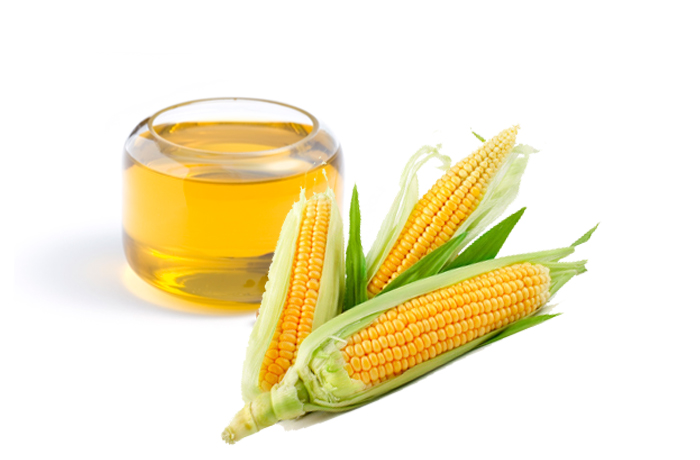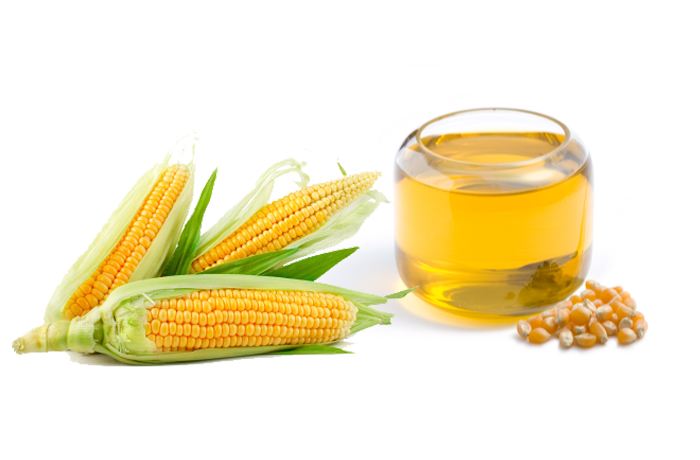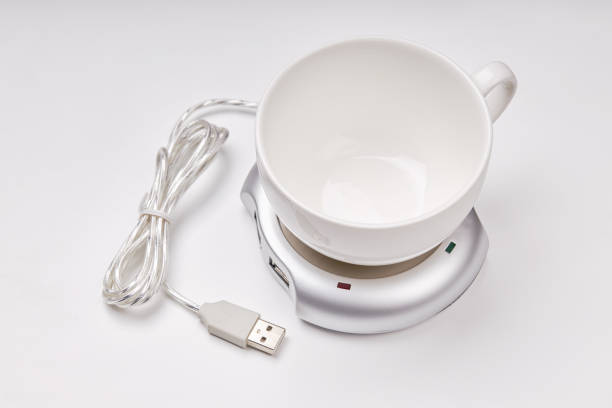Corn oil is a popular kitchen staple in many American households, valued for its affordability and versatility. Whether you’re frying, baking, or sautéing, corn oil is often the go-to option. But with more people becoming health-conscious, the big question arises: Is corn oil healthy? In this article, we’ll explore corn oil’s nutritional profile, its advantages, potential downsides, and the production process, so you can make an informed decision about whether it belongs in your diet.
Nutrition of Corn Oil
To understand Is corn oil healthy?, we need to start with its nutritional breakdown. Corn oil is rich in polyunsaturated and monounsaturated fats—both of which are considered healthier fats when consumed in moderation. Corn oil is also a good source of Vitamin E, a key antioxidant. Here’s a quick look at the nutritional content of corn oil, according to the USDA FoodData Central:
| Nutrient | Amount per tbsp (14g) |
|---|---|
| Calories | 120 |
| Total Fat | 14g |
| Polyunsaturated Fat | 7g |
| Monounsaturated Fat | 4g |
| Saturated Fat | 1.5g |
| Vitamin E | 2.4mg (12% DV) |
This breakdown highlights corn oil’s high fat content, particularly its beneficial polyunsaturated fats, which can support heart health when consumed in moderation. However, corn oil’s omega-6 content is a factor worth considering.
Usefulness of Corn Oil
Corn oil’s neutral flavor and high smoke point make it a versatile option for a wide range of cooking methods, from frying and grilling to baking. Beyond cooking, it’s also used in non-food items such as cosmetics and soaps. But its role in the kitchen is where corn oil shines most—especially for high-heat cooking. However, we still need to answer: Is corn oil healthy? We’ll look at its pros and cons next.
Procedures for Producing Corn Oil
Corn oil goes through a multi-step process before reaching your kitchen shelves:
- Extraction: The oil is extracted from the germ of corn kernels using mechanical pressing or chemical solvents.
- Refining: The extracted oil is refined to remove impurities, extending its shelf life and making it more suitable for cooking.
- Degumming and Deodorizing: These processes ensure the oil is odorless and free from unwanted substances, making it ideal for high-heat cooking.
- Winterization: This step ensures the oil remains liquid, even in colder storage temperatures.
While refining improves the oil’s stability, it also strips away some nutrients, reducing its overall health benefits.

Advantages of Corn Oil
1. Can Improve Heart Health
Corn oil is rich in polyunsaturated fats, which can help lower LDL (bad) cholesterol when consumed in place of saturated fats. Studies suggest that replacing saturated fats with polyunsaturated fats, such as those found in corn oil, can reduce the risk of heart disease. However, moderation is key to maximizing these benefits.
2. Rich in Vitamin E
Corn oil is a good source of Vitamin E, a potent antioxidant that supports immune health and skin health by protecting cells from oxidative damage. Incorporating corn oil into your diet can help boost your Vitamin E intake.
3. High Smoke Point
Corn oil’s high smoke point (around 450°F) makes it ideal for high-heat cooking methods like frying, grilling, and roasting. Its neutral taste also allows it to blend seamlessly into a wide variety of recipes without overpowering the flavor.
Disadvantages of Corn Oil
1. Manufactured From GMO Maize
One of the concerns with corn oil is that it’s often derived from genetically modified (GMO) corn. While GMO foods are generally considered safe by regulatory agencies like the FDA, some people prefer to avoid them for health or environmental reasons. If you’re wary of GMOs, look for non-GMO or organic corn oil.
2. High in Omega-6 Fatty Acids
Corn oil contains a significant amount of omega-6 fatty acids. While omega-6 is essential for the body, an imbalance between omega-6 and omega-3 fatty acids can contribute to inflammation. Most Americans already consume plenty of omega-6s through their diet, so it’s crucial to balance this intake with omega-3-rich foods like fish, flaxseeds, or walnuts.
3. Highly Refined
Refining corn oil strips away many of its natural nutrients and may introduce small amounts of trans fats. While trans fats are present in trace amounts in refined corn oil, their consumption is linked to negative health outcomes, especially for heart health. For a healthier alternative, you might opt for less refined or cold-pressed oils, which retain more of their natural nutrients.
Is Corn Oil Healthy?
So, is corn oil healthy? The answer depends on how you use it. Corn oil provides some health benefits, particularly for heart health, due to its high polyunsaturated fat content and Vitamin E. However, its high omega-6 fatty acid content, potential GMO concerns, and refining process may raise some red flags for certain individuals.
When used in moderation and balanced with oils rich in omega-3s, like olive or flaxseed oil, corn oil can be part of a healthy diet. However, if you’re looking for oils with fewer health risks and more nutritional value, olive oil and avocado oil might be better alternatives.
Frequently Asked Questions
Is corn oil healthy for frying?
Yes, corn oil’s high smoke point makes it suitable for frying, but frequent consumption of fried foods—regardless of the oil used—can have negative health effects. It’s best to enjoy fried foods in moderation.
Is corn oil made from GMO corn?
Most commercially available corn oil is made from genetically modified corn. If avoiding GMOs is important to you, look for labels that specify non-GMO or organic corn oil.
Can corn oil improve heart health?
Corn oil can help improve heart health by lowering LDL cholesterol levels, thanks to its polyunsaturated fat content. However, it should be consumed in moderation as part of a balanced diet.
Is corn oil better than olive oil?
Olive oil is higher in monounsaturated fats, which are more heart-healthy compared to polyunsaturated fats. Corn oil, on the other hand, has a higher smoke point, making it better for high-heat cooking. The choice depends on your cooking needs and dietary preferences.
Who should avoid corn oil?
People who are trying to limit their intake of omega-6 fatty acids or avoid GMO foods should consider reducing their use of corn oil. It’s also a good idea for those seeking less processed oils to explore alternatives like olive or avocado oil.
Conclusion
In summary, corn oil can be part of a healthy diet if used in moderation and balanced with other healthy fats. Its heart health benefits, high smoke point, and Vitamin E content make it a viable cooking option, but its high omega-6 content and refined nature mean it’s best to use sparingly. As with most oils, variety and balance are key to maintaining a healthy diet.





